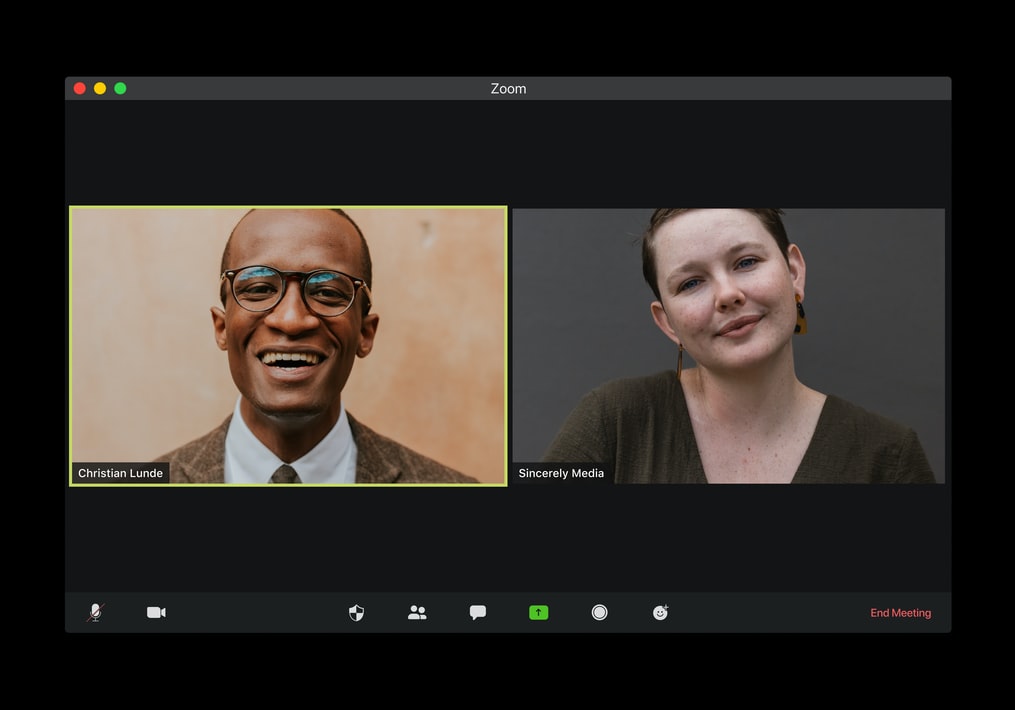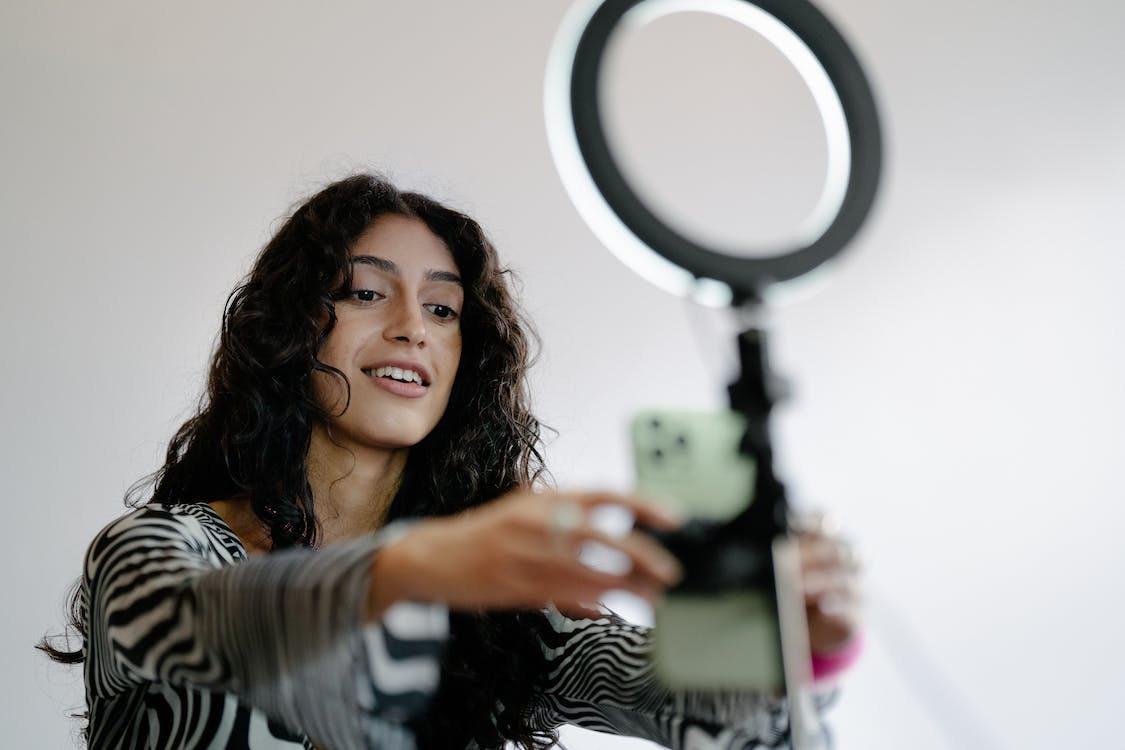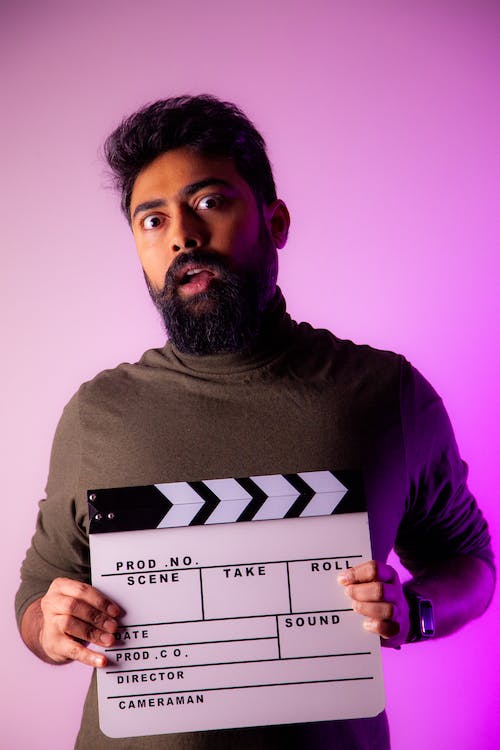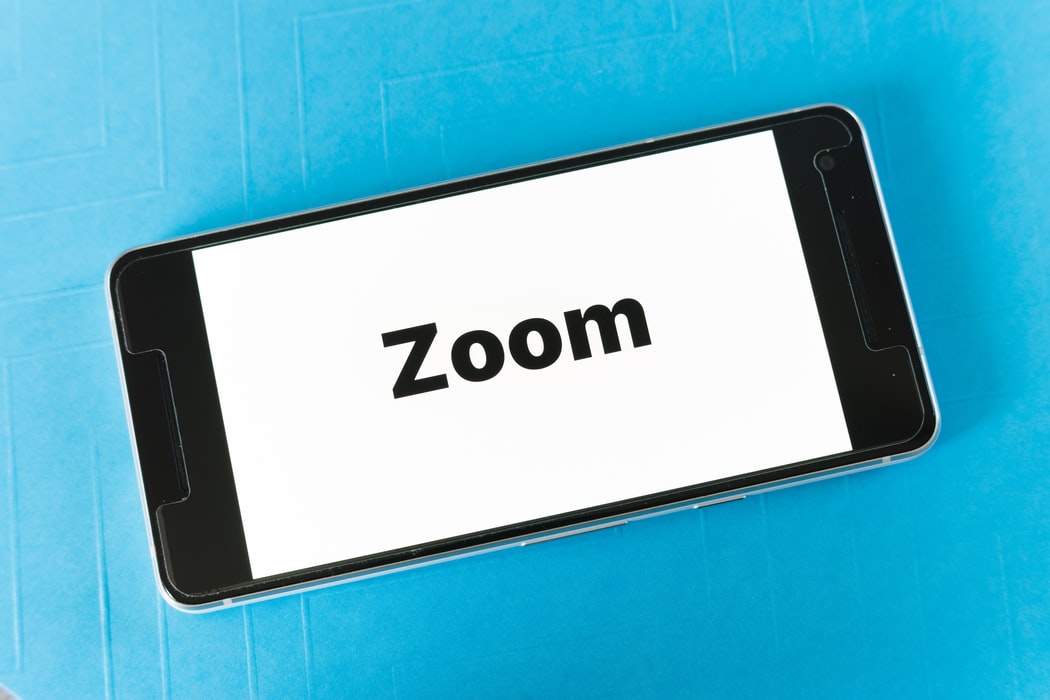What is a Virtual Audition?
Everything you ever want to know about Zoom and virtual auditions
(By Jim Webb)
 (Photo: Visuals/Unsplash)
(Photo: Visuals/Unsplash)
At its core, a virtual audition is a casting process conducted remotely using digital communication tools such as video conferencing, online submission platforms, or prerecorded video submissions. This method allows performers to audition for roles without the need to be physically present in a casting room, offering greater accessibility and flexibility for both actors and casting professionals.
Virtual auditions can take various forms, each tailored to suit the specific needs of the production and the preferences of the casting team. Here are some common types of virtual auditions:
Live Video Auditions: In this format, actors connect with casting directors in real-time via video conferencing platforms like Zoom or Skype. Similar to traditional in-person auditions, performers are given a specific time slot to showcase their talents and interact with the casting team remotely.
Pre-Recorded Video Submissions: Actors record their audition pieces independently and submit the videos electronically through online platforms or email. This method provides actors with the flexibility to rehearse and perfect their performances before submitting them for consideration.
Virtual Casting Calls: Casting directors host virtual casting calls, where actors can join remotely to receive audition materials, ask questions, and submit their auditions electronically. These events may include live Q&A sessions, virtual networking opportunities, and callbacks conducted via video conferencing.
Remote Script Reads: For ensemble casting or table reads, actors gather virtually to perform scenes or scripts together. This allows casting directors to assess chemistry between performers and evaluate how actors interpret and interact with the material in a collaborative setting.
Virtual auditions offer numerous benefits for both casting professionals and performers. They eliminate geographical barriers, allowing actors from diverse locations to audition for roles without the need for extensive travel. Additionally, virtual auditions streamline the casting process, enabling casting directors to review auditions more efficiently and involve key stakeholders regardless of their physical location.
However, virtual auditions also present some unique challenges. Technical issues such as poor internet connection, audio/video quality problems, and unfamiliarity with digital platforms can disrupt the audition experience for both actors and casting professionals. Moreover, the absence of face-to-face interaction can make it challenging to gauge non-verbal cues and establish a personal connection between actors and casting directors.
Despite these challenges, virtual auditions have become an integral part of the casting process, particularly in light of the COVID-19 pandemic, which prompted widespread adoption of remote work and virtual communication tools. As technology continues to advance and industry practices evolve, virtual auditions are likely to become even more prevalent, offering a convenient and accessible alternative to traditional casting methods.
How do you prepare for a virtual audition?
 (Photo: Mizuno K | Pexels)
(Photo: Mizuno K | Pexels)
Preparing for a virtual audition requires careful attention to detail and thoughtful planning to ensure that you present yourself in the best possible light. Here are some steps to help you prepare effectively:
Read the Audition Instructions Thoroughly: Pay close attention to the audition notice or instructions provided by the casting director. Make sure you understand the requirements regarding audition materials, time limits, technical specifications, and submission deadlines.
Choose Your Audition Material: Select audition pieces (monologues, scenes, songs, etc.) that showcase your strengths as a performer and are appropriate for the role or project you’re auditioning for. Practice your material extensively to ensure that you’re confident and polished in your performance.
Set Up Your Space: Create a clean and clutter-free environment for your audition. Choose a well-lit area with minimal background distractions. Position your camera at eye level and test your audio and video quality to ensure clear communication.
Test Your Technology: Familiarize yourself with the video conferencing platform or recording software you’ll be using for the audition. Test your internet connection, camera, microphone, and any other equipment to avoid technical issues during the audition.
Dress Appropriately: Dress professionally as you would for an in-person audition. Choose clothing that complements the character you’re portraying and makes you feel confident and comfortable on camera.
Practice Self-Taping Techniques (if applicable): If you’re submitting a pre-recorded audition video, learn proper self-taping techniques such as framing, lighting, and audio recording. Make sure your video meets the required specifications and follows any formatting guidelines provided by the casting director.
Warm Up Your Voice and Body: Engage in vocal and physical warm-up exercises to prepare your voice and body for performance. Stretch, breathe, and vocalize to ensure that you’re relaxed, energized, and ready to deliver a dynamic audition.
Prepare for Technical Challenges: Anticipate potential technical issues and have a backup plan in place. Keep contact information for technical support readily available and be prepared to troubleshoot common problems such as audio/video glitches or internet connectivity issues.
Practice Virtual Etiquette: Familiarize yourself with virtual meeting etiquette, including how to greet the casting team, maintain eye contact with the camera, and minimize distractions during the audition. Treat the virtual audition with the same professionalism and respect as you would an in-person audition.
Stay Calm and Confident: Approach the virtual audition with confidence and a positive attitude. Remember that the casting team wants you to succeed and is rooting for you to deliver a compelling performance. Trust in your preparation and trust in yourself as a performer.
What do you wear to a virtual audition?
 (Photo: Liza Summer | Pexels)
(Photo: Liza Summer | Pexels)
Choosing the right attire for a virtual audition is important because it contributes to your overall professional image and helps create the right impression with casting directors. Here are some tips for selecting appropriate clothing:
Dress for the Role: Consider the character you’re auditioning for and choose clothing that reflects their personality, style, and the context of the scene. While you don’t need to wear a full costume, incorporating elements that evoke the character’s essence can help you connect with the role.
Opt for Neutrals and Solid Colors: Avoid distracting patterns, logos, or overly flashy clothing that may detract from your performance. Instead, opt for solid colors or simple patterns that look flattering on camera and won’t compete with your facial expressions or body language.
Choose Comfortable Clothing: Select attire that makes you feel comfortable and confident during the audition. Avoid clothing that is too tight, restrictive, or uncomfortable to move in, as it may affect your performance and demeanor.
Dress Professionally: Treat the virtual audition as you would an in-person audition and dress professionally from head to toe, even if only the upper half of your body will be visible on camera. This demonstrates your commitment to the audition process and your respect for the casting team.
Pay Attention to Details: Ensure that your clothing is clean, pressed, and well-maintained. Pay attention to grooming details such as hair, makeup, and accessories to present a polished appearance on camera.
Consider Your Background: Take into account the color and style of your audition space when selecting clothing. Choose clothing that contrasts with your background to ensure that you stand out and remain the focal point of the audition.
Avoid Distracting Jewelry or Accessories: Minimize distracting jewelry, accessories, or props that may draw attention away from your performance. Opt for subtle, tasteful accents that complement your outfit without overpowering it.
Test Your Outfit on Camera: Before the audition, test your outfit in front of the camera to see how it looks on screen. Pay attention to how the colors, textures, and fit appear in the video frame and make adjustments as needed.
What to expect from a virtual acting audition?

(Photo: Teja J | Pexels)
A virtual acting audition shares many similarities with traditional in-person auditions, but there are also unique aspects to consider due to the remote nature of the process. Here’s what you can generally expect from a virtual acting audition:
Audition Format: Virtual auditions can take various formats, including live video auditions, pre-recorded video submissions, virtual casting calls, or remote script reads. The specific format will depend on the preferences of the casting director and the requirements of the project.
Technical Setup: Before the audition, you’ll need to ensure that you have the necessary technical setup, including a reliable internet connection, a computer or device with a webcam and microphone, and any required software or video conferencing platforms. Test your equipment beforehand to avoid technical issues during the audition.
Scheduling and Instructions: You’ll receive instructions from the casting director regarding the audition process, including the date, time, and instructions for accessing the virtual audition platform. Make sure to review these instructions carefully and follow any specific guidelines provided.
Audition Material: Prepare your audition material in advance, whether it’s a monologue, scene, song, or any other required performance piece. Practice your material thoroughly and be prepared to perform it confidently during the audition.
Performance Environment: Set up a quiet, well-lit space for your audition where you won’t be interrupted or distracted. Choose a neutral background and ensure that your face is well-lit and clearly visible on camera.
Virtual Etiquette: Treat the virtual audition with the same professionalism and respect as you would an in-person audition. Greet the casting team warmly, maintain eye contact with the camera, and listen attentively to any instructions or feedback provided.
Interaction with Casting Team: During a live video audition, you may have the opportunity to interact with the casting team in real-time. Be prepared to answer questions about yourself, your experience, and your approach to the character. Stay engaged and responsive throughout the audition process.
Technical Considerations: Be prepared to handle any technical challenges that may arise during the audition, such as audio/video glitches, internet connectivity issues, or unfamiliarity with the virtual platform. Stay calm and flexible, and have a backup plan in place if needed.
Feedback and Callbacks: After the audition, you may receive feedback from the casting team or be invited to participate in callbacks or additional rounds of auditions. Stay responsive to communication from the casting director and be prepared to follow up as needed.
Are Zoom auditions legit?
 (Photo: Markus Winkler | Unsplash)
(Photo: Markus Winkler | Unsplash)
Yes, Zoom auditions are indeed legitimate and have become increasingly common in the entertainment industry, particularly since the onset of the COVID-19 pandemic. Zoom, along with other video conferencing platforms, has emerged as a practical and efficient tool for conducting auditions remotely.
How do you stand out in a zoom audition?
 (Photo: Anna Shvets | Pexels)
(Photo: Anna Shvets | Pexels)
Standing out in a Zoom audition requires strategic preparation, engaging presentation, and effective use of the virtual platform to showcase your talent and professionalism. Here are some tips to help you make a memorable impression:
Preparation is Key: Thoroughly prepare your audition material, including monologues, scenes, or songs, and rehearse until you feel confident and comfortable with your performance. Familiarize yourself with the character, the context of the scene, and any specific instructions provided by the casting director.
Capture Attention from the Start: Begin your audition with a strong and compelling introduction to capture the casting team’s attention. Consider starting with an engaging line or moment from your audition material that showcases your talent and leaves a lasting impression.
Make Eye Contact with the Camera: Maintain eye contact with the camera throughout your audition to create a sense of connection and engagement with the casting team. Avoid looking at your own image or other distractions on the screen.
Use Body Language and Facial Expressions: Use body language and facial expressions to convey emotion, intention, and character depth. Gesture naturally within the frame of the camera and adjust your facial expressions to match the mood and tone of the scene.
Utilize the Space: Make use of the space within the frame to create dynamic and visually interesting compositions. Experiment with different camera angles, framing, and movement to enhance your performance and draw attention to key moments.
Showcase Versatility: Demonstrate your versatility as an actor by showcasing a range of emotions, character traits, and performance styles. Be prepared to adapt your performance based on any feedback or redirection from the casting director.
Engage Actively with the Casting Team: Actively engage with the casting team throughout the audition by listening attentively, responding thoughtfully to any direction or feedback provided, and asking relevant questions to clarify expectations or explore character choices.
Demonstrate Professionalism: Approach the Zoom audition with the same level of professionalism and preparation as you would for an in-person audition. Dress appropriately, arrive on time, and be courteous and respectful in your interactions with the casting team.
Embrace Technology: Embrace the capabilities of the Zoom platform to enhance your audition presentation. Use features such as screen sharing, virtual backgrounds, and multimedia elements (if appropriate) to enrich your performance and create a memorable audition experience.
Be Authentic and Confident: Above all, be authentic and confident in your performance. Trust in your preparation, stay true to your instincts as an actor, and let your unique personality and talent shine through in your audition.



